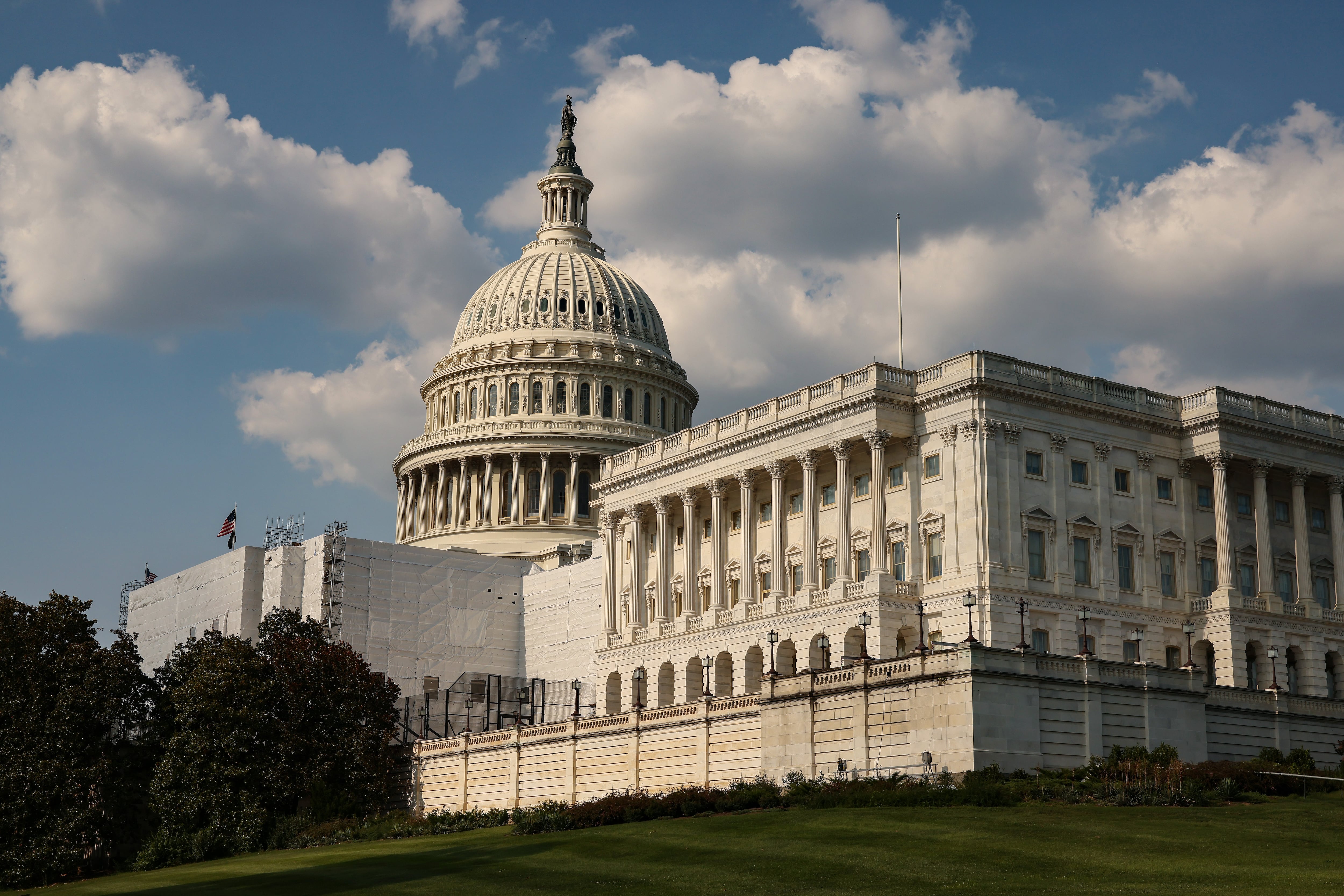Sign up for Chalkbeat’s free weekly newsletter to keep up with how education is changing across the U.S.
Republicans in the U.S. House of Representatives want to dramatically slash funding for Title I, the long-running federal program that sends money to schools based on the number of children from low-income families that they serve.
A bill advanced by a Republican-controlled House subcommittee on Friday seeks to cut Title I grants by 80% or nearly $15 billion.
The proposal is part of a broader package of GOP-backed cuts to schools and other federal programs. The bill would also ban the use of funding to teach “critical race theory,” although the concept is not defined.
Since Democrats control the Senate and White House, the deep cuts appear unlikely to be enacted. Even some Republicans may blanch at the idea, which would lead to spending reductions in their own districts’ schools. Still, the move highlights Republicans’ growing critique of American public schools — in how they’re funded, what they teach, and how they responded to the pandemic.
“While Title I grants do support school districts everywhere, including rural schools in districts like my own, these funds disproportionately support big city public schools: the same public schools that failed to educate the most-vulnerable children entrusted to them, by closing their doors for almost two years,” Rep. Robert Aderholt, a Republican from Alabama, said in a subcommittee hearing Friday.
It also underscores just how far apart the two parties have moved on education issues: President Joe Biden has sought to dramatically increase Title I funding.
“I don’t think this can pass Congress, but it’s incredibly concerning that this is what the leaders of this committee think is a reasonable thing for Congress to do,” said Sarah Abernathy, executive director of the Committee for Education Funding, a coalition of education associations that supports more money for schools.
The House proposal represents an initial volley in how much to fund various federal programs in the upcoming fiscal year. The cuts to Title I are justified, Republicans on the subcommittee said in a messaging document, because some COVID relief funding provided to schools ”remains unspent and further investments will not be provided until these funds are used responsibly.” A major chunk of the proposed cut would come by rescinding Title I money that was approved by Congress last year.
House Republicans are also seeking to eliminate Title II, which among other things provides professional development to teachers — or as the subcommittee’s Republican members put it, “teacher training programs that send teachers to expensive weekend workshops.”
The proposal would hold steady funding for the Individuals with Disabilities Education Act, which helps schools educate students with disabilities. It would also provide a modest boost for the federal Charter Schools Program, which supports the expansion of charter schools.
Although the legislation received initial approval from subcommittee Republicans, it’s a long way from being enacted. Any final spending law will have to be approved by the Senate and signed by the president.
What is clear is that the big education funding increases that Biden initially hoped after being elected for will not be forthcoming: The president has already made a deal with Republicans to limit discretionary federal spending, including for education.
The vast majority of money that schools receive come from state and local sources. Funded most recently at $18.4 billion, Title I accounts for a small share of the several hundred billion spent on education each year. But by design, the money flows disproportionately to schools serving more students from low-income backgrounds. That means any cut to Title I would hit those schools hardest. It would also have a larger impact on schools serving more students of color.
The proposal would affect district, charter, and private school students alike. (Private school students in poverty receive Title I services provided by their local district in coordination with the student’s school.)
How Title I funding is used varies from school to school. But it typically supports instruction for students from low-income families, including by hiring more teachers to reduce class size, adding class time, and providing coaching to help teachers improve. Most research has found that more money for schools boosts student performance. Studies on Title I in particular are more limited and mixed, though.
Republicans link COVID aid with Title I cut
House Republicans’ effort to cut Title I appears motivated by the fact that schools have received large sums of federal COVID relief money, which was distributed through the Title I formula. The biggest tranche came from the Biden-championed American Rescue Plan. Republicans have questioned whether that money has been used effectively and suggested that schools have been slow to spend it. Republicans have also voiced concern that high levels of federal spending have contributed to inflation, which some research supports.
Nat Malkus, a fellow at the American Enterprise, a conservative think tank, said some of these concerns are legitimate. “Boatloads of money went out in ARP, more than school districts were ready to use effectively and without any of the guardrails that could guide the spending,” he said.
School officials, on the other hand, say that the money has provided crucial support throughout the pandemic. And they now appear to be on track to spend down the relief dollars as part of a multi-year plan. They have until fall of 2024 to do so, and may seek extensions.
“They haven’t spent it all yet because they didn’t have to,” said Abernathy. “If you want to give local control, that’s what happens.”
House Democrats predicted that if the Republican bill were enacted, it would result in tens of thousands of teachers losing their jobs. “We are witnessing a widespread attack on public education that should horrify all of us,” said Rep. Rosa DeLauro, a Democrat from Connecticut. A number of education groups also condemned the proposal.
Malkus agreed that if the cuts are ultimately enacted it would have harmful effects. “There’s no doubt that it’s going to hurt students,” he said. But he also emphasized that the proposal faces long odds and perhaps should be seen as more of a messaging document: “It’s something that you should take seriously, but not literally.”
Title I was enacted in 1965 under President Lyndon Johnson as an effort to improve the education of disadvantaged children by providing additional funding to their schools. Ever since, various Republicans — including presidents Richard Nixon, Ronald Reagan, and Donald Trump — have been trying to cut or eliminate the program.
In 2020, Trump’s education secretary Betsy DeVos proposed combining Title I and other federal education programs into a sharply reduced block grant that districts could spend as they see fit.
But Title I has persisted, even when Republicans have fully controlled the federal government, in part because it has developed a constituency of teachers and school administrators who support the program. And most school districts in the country receive some Title I funding. Even many Republicans have been loath to back cuts in funding to their local schools.
“It’s a program that a lot of schools get,” said Abernathy. “It is generally very hard to slash funding for big formula programs that go to most Congressmembers’ constituents.”
Matt Barnum is a national reporter covering education policy, politics, and research. Contact him at mbarnum@chalkbeat.org.







